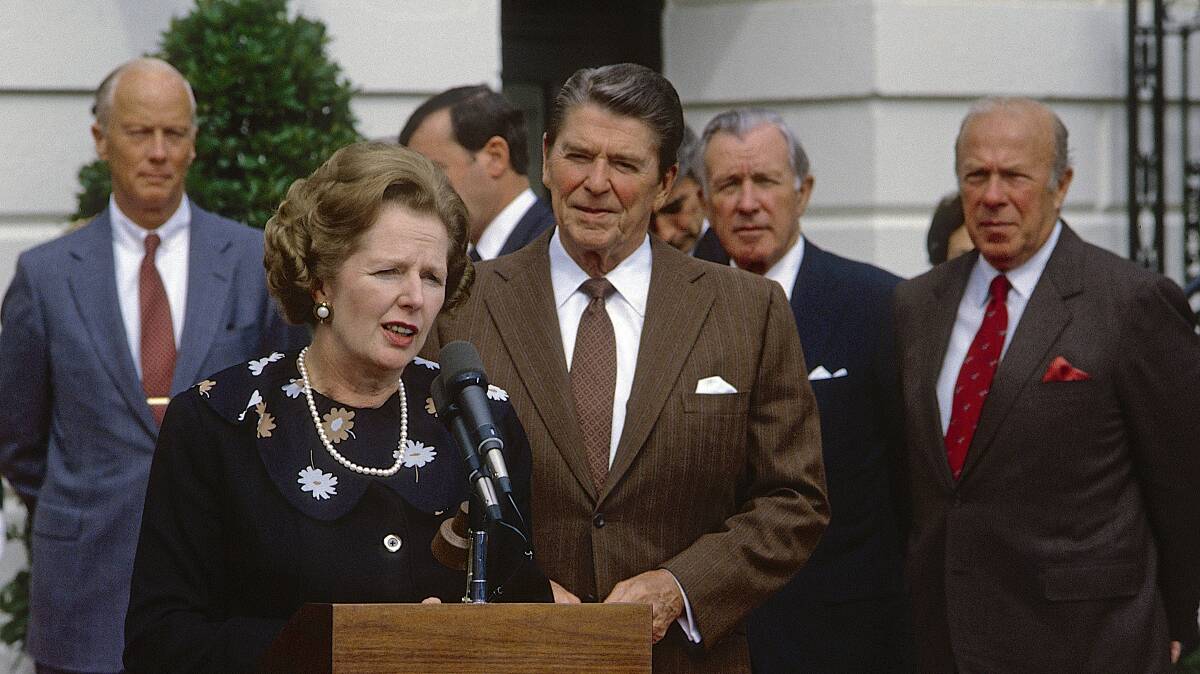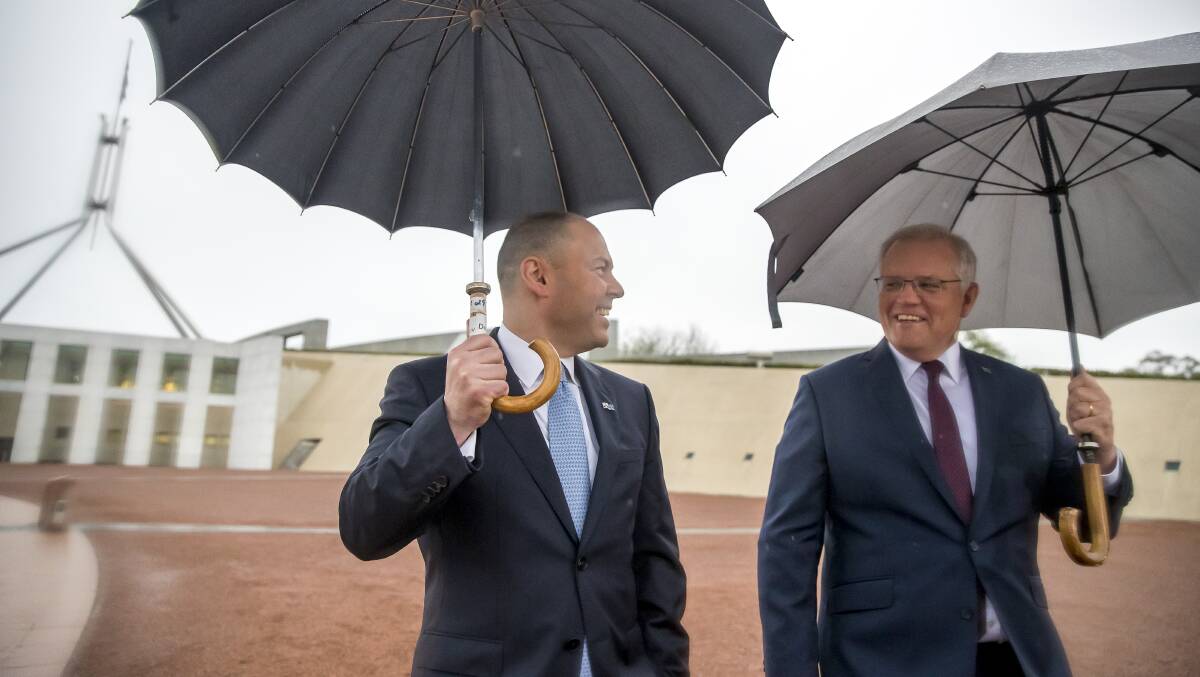
Here's my prediction: 2021 is either going to be the year of fighting or the year of waiting.
Subscribe now for unlimited access.
or signup to continue reading
By waiting I don't mean the happy feeling of anticipation. I mean the feeling of dread. The kind of feeling you get when you're expecting bad news. It's not quite despair. There's this tiny nugget of hope, a desperate hope, a hope so small it could be mistaken for despair.
2021 did not have to be the year of waiting. It could have been the year of reconstruction. But the Morrison government has decided, in its 2020 budget, to look after its mates instead of rebuilding the nation. What we're getting is not so much a recovery as a redistribution. Which wouldn't be so bad except that it is going to be a redistribution to the already wealthy and powerful.
Not all of them. There are going to be winners and losers. That's what happens when it's mates looking after mates. But what to some seems harmless, even laudable, is actually larcenous. It's achieved by stealing from the many, including those who need the most help.
When you deny a permanent increase to JobSeeker and other social security benefits, you are taking from those who need it. When you cut and then phase out JobKeeper at a time when many are likely to have no jobs when it ends in March, you are taking from those who need it.
When you suppress wage growth and accelerate the growth of insecure work, you are taking from those who need it. When you refuse to seriously invest in First Nations communities, when you fail to address the recession's disproportionate impact on women, when you reject the possibility of a care-led recovery, when you abrogate your responsibility as a government to make a serious investment in social housing, you are taking from those who need it.
And when you keep the golden tap on for wealthy private schools while failing to invest in education for all, from early childhood education and public schools through to TAFE and universities, you are taking from those who need it.
This is why 2021 is sadly not going to be a year of reconstruction. Because this year's federal budget was a triumph of ideology over common sense and the common good.
What we needed was a jobs plan coupled with a plan to care for the people. What we got was an invitation to place our trust in the discredited theory that, with the right mix of tax breaks and deregulation, the jobs will come and the wealth will trickle down.
It's a promise that neoliberal ideologues have been making for the past 40 years, and for the past 40 years we've listened hard for the sound of the wealth trickling down - but all we've ever been able to hear is the sound of the excluded still waiting.
This budget is a budget with short-term cash and long-term uncertainty, a budget without a heart, a budget that boosts inequality, a budget that keeps the excluded still waiting.
Two and half million of us are unemployed or underemployed. Another three and half million of us are on JobKeeper.
It's going to be a year of waiting for new jobs that don't appear and old jobs that may or may not still be there once JobKeeper is phased out. Because the current government chose not to embark on a genuine jobs plan or even a plan to protect people who are not in paid work. Because the current government is big on promises but short on delivery.
Those of us who live in one of the 150,000 households waiting for social housing are going to be waiting still. Because the current government deliberately decided against the kind of boldness required to meet the projected national shortfall in social housing of over 430,000 homes.
As for the protection of our common home, the planet, we are going to be waiting for a while. We have a government that thinks that by closing its eyes to the climate emergency it might just go away.
Just below the surface of the tax-cut splash and the pious promises that the government's focus is on jobs, we are seeing the architecture of a new austerity. It is evidenced by the government's dogmatic resistance to lifting incomes, for wage-earners and social security recipients alike.
It is also evidenced by the government's equally dogmatic resistance to building up the public sector.
Both of these trajectories are straight out of the neoliberal playbook written by Thatcher and Reagan, both of whom the federal Treasurer has expressed a genuine admiration for.
Neither of these trajectories is passive. In both cases the government appears to be committed to playing an active role, in redistributing even greater wealth and power to its mates.

In the case of incomes, the ACTU anticipates the government is considering further deregulation of the labour market, resulting in lower wages by, for example, eliminating penalty rates for many.
For those workers who are unemployed, we are seeing the extension of such cruel and paternalistic practices as the cashless welfare card, the bill for this being currently considered by Parliament.
I would be surprised if we do not, in the coming year, see a further rollout of this deliberate means of humiliating people, under the guise of "financial literacy", which it is in fact the exact opposite of, since it is inherently disempowering.
We will also see a focus on demonising people who are unemployed, starting with the young, while creating a supply of cheap labour through shonky means from the growing pool of unemployed workers.
Keep in mind that, at the same time, older unemployed workers are being deliberately excluded from job opportunities due to the design of the so-called JobMaker scheme. All of this while the Jobactive network remains in costly disarray.
Here we are, deep in the guts of a crisis, and the government is giving us a masterclass in the art of engineering long-term precarity, effectively telling us to keep calm and wait for the wealth to trickle down.
As the assaults on the lives and the living standards of workers (whether we are in paid work or not) gain momentum, the Morrison government and its friends are going to try to turn us against each other. It is what they do.
MORE JOHN FALZON:
But if we are to successfully change the course of the economy so that it delivers for all of us instead of delivering a "jobless recovery", we are going to need to work together, whether we are currently in well-paid or low-paid work, whether we are in highly precarious or fairly secure work, whether we're in full-time or part-time work, whether we are in paid work at all or unemployed, studying, living with a disability, engaged in full-time caring, or retired.
We are going to need to stand together whether we are young or old. We are going to need to stand up for each other, to feel the injury to others as an injury to ourselves. We are all going to need to join the fight for the rights of women, who have been monumentally excluded from any vision for the future on the basis of the budget.
We are all going to need to join the fight for the rights of First Nations workers and communities. We are all going to need to call out the sexism, racism, homophobia, transphobia, ableism, and ageism. We are going to have to learn to listen, not to the lies they tell us about each other, but to each other.
We are going to have to call bullshit when they tell us that austerity is good for us, that we can't afford to fund a caring society because we have to pay down the debt; when they tell us that we are going to have to forego wage increases or superannuation guarantee increases or social security increases because now is not the time to be greedy, despite the fact greed has been officially declared to be good for the already wealthy (and for those upon whom it supposedly trickles down!).
We are going to need to join our unions, join the movement for a caring society. We are going to need to unite. Rather than waiting for the jobs to come and the wealth to trickle down, we are going to need to collectively engage in the organisation of hope.
And hope must be organised, if it is to translate into progressive social change.
As the poet and activist Grace Paley put it: "The only recognisable feature of hope is action."
- Dr John Falzon is senior fellow of inequality and social justice at think tank Per Capita. He was national chief executive of the St Vincent de Paul Society from 2006 to 2018 and is a member of the Australian Services Union.

